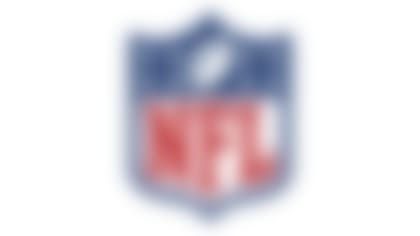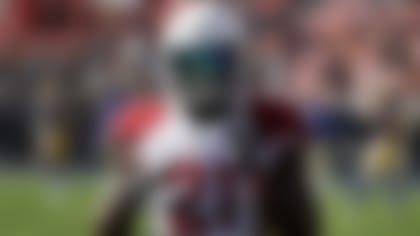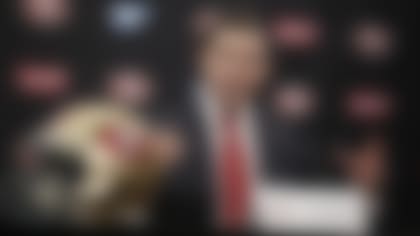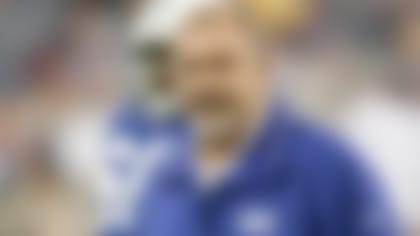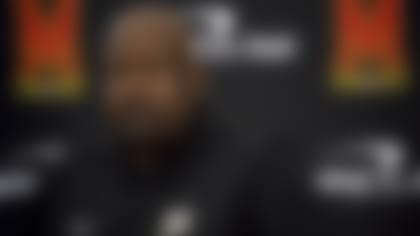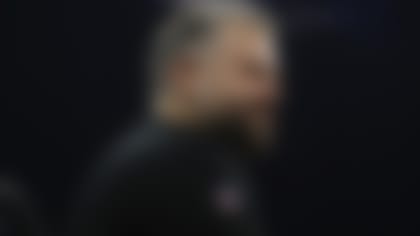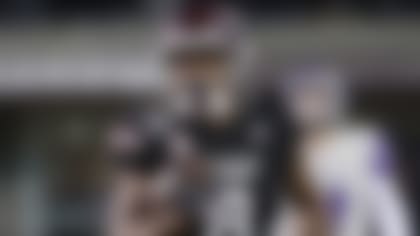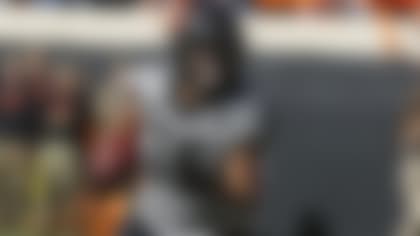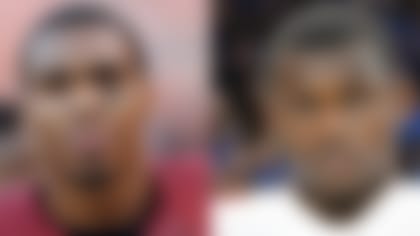Pro football has changed over the last half-decade, under the looming presence of the now-settled concussion lawsuit, and with a heavier-handed enforcement system weaning players off old on-field habits.
But that doesn't mean there haven't been guys who continue to play on the edge of the rules.
And so this spring, new NFL executive VP of football operations Troy Vincent set out on an ambitious plan to reach those who've teetered on the boundaries of the league's new way of doing on-field business.
Vincent and the league identified 21 players in the "at-risk" category. In the group were the six players who have been suspended for hits over the last two years (Buccaneers safety Dashon Goldson, Titans safety Michael Griffin, Redskins safety Brandon Meriweather, Raiders defensive lineman Antonio Smith, Chiefs linebacker Joe Mays and Colts linebacker Erik Walden), and 15 others who were close to escalated discipline.
From there, Vincent set up in-person meetings, traveling to visit the players. He's met with 16 so far. The plan is to meet with the other five over the next couple of weeks.
"The objective was to sit down, review the tape, watch the games, and let's see what's taking place -- from a coverage standpoint, up front, every scenario," said Vincent, who played for the Dolphins, Eagles, Bills and Redskins over a 15-year career. "How do we assist in making sure the player, the coach, the agent, everyone is on the same page in regards to what we expect and what they expect? A lot of it was casual conversation, put on the tape and say, 'Take me through this play progression.'"
The 16 meetings he's had so far haven't all gone swimmingly, as would be expected. There's been pushback, and some anger.
But for the most part, what Vincent found was a group of players who wanted to do the right thing. Maybe most encouraging was how the first of these meetings, with Lions defensive tackle Ndamukong Suh during OTAs, set the tone. Suh was suspended in 2011, and has long been subject to increased league scrutiny as a result of his style of play.
"He was very receptive, he understood, he cared about the perception, his reputation, and I told him we're not trying to take the edge he plays with away," Vincent said. "I said, 'We've seen you adjust, we've seen an adjustment in your play, let's keep that going.' ... We met for hours, talking about the example he sets, the role model he's become, and emphasizing his adjustment. What he did was set the bar with his approach, since he was first."
Another player Vincent singled out as receptive was Redskins cornerback DeAngelo Hall.
"We have a long-term relationship, we've known each other a long time, so we had a really good discussion," Vincent said. "He got it, he understood. Some of the others were not as cordial, and that's OK, too."
Hall's teammate Meriweather had a shorter meeting with Vincent, and when asked about being on the list in June, responded: "I can't say I shouldn't be on the list. At the same time, I do understand why they'd do it."
Meriweather reiterated what he's said in the past, that it's difficult to adjust a player's style at NFL speed, but said he's made a concerted effort to fix his issues, using new teammate and fellow safety Ryan Clark as a sounding board. Clark was under the league's microscope for his playing style as a Steeler, but has not incurred a fine in three seasons.
"I've got Ryan, I've got the coaches, they're gonna help me with all that," Meriweather said.
Meriweather is one of eight defensive backs on Vincent's list of 21 players, joining five linebackers, seven defensive linemen and one offensive tackle.
The NFLPA has been informed of Vincent's initiative, but is not actively involved, according to union sources.
During the meetings, Vincent has reviewed tape with players and leaned on his decade-and-a-half as a player to advise them. He did see some of the issues as common from case to case.
"Two things really," said Vincent. "For Suh and some others, it was the extracurricular after the play. Literally, kicking, that was after the play. Some of the others, it was mostly that the player was out of position, it's taking poor angles or being out of position. We would say you give up your body to make the play, but sometimes, you give up your body because you're out of position. And sometimes, you see, that it was deliberate. And you say, 'OK, that's deliberate, and we can fix it.'"
Vincent also tried to educate the players by showing them the fine schedule, to illustrate that these five-figure penalties are formulaic, not arbitrary, which he said caught many of them off-guard. He came armed with numbers that back up that the tightened rules have made a difference. One example: In 2013, there were 25 players fined for hits on defenseless players, down from 40 in 2012.
The main goal of the initiative is to make sure players won't jeopardize their careers by continuing to accumulate sanctions. That part of it, Vincent said, was universally well-received:
"I thought overall that the players were very receptive. "And they appreciate what took place. I said to them, 'I want to keep you on the field.' And I wanted to make sure they heard it from me."
Follow Albert Breer on Twitter @AlbertBreer.
